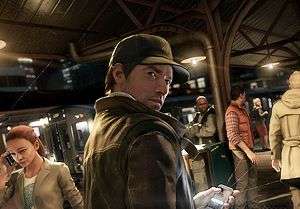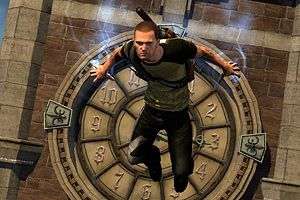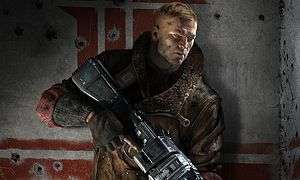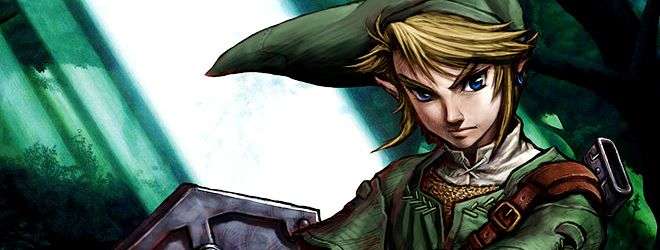A Blank Canvas
by Chris
 I have a somewhat controversial opinion when I say that I love Watch_Dogs. It’s an entertaining and varied action-adventure title that continues to impress me the more I play it and, for me, one of the best elements is its main character, Aiden Pearce. If every journalist could agree on one thing with Watch_Dogs (other than either we should all have Nexus 7 Tablets or no-one should) it’s that Aiden Pearce was an emotionless shell of a man, whose plight we should somehow try and associate with, despite him having the personality of a yard brush covered in last week’s rotting leaves and newspaper. Despite him vocally proclaiming all sorts of problems within the game, his face tells a different story and that is one of complete and utter disinterest.
I have a somewhat controversial opinion when I say that I love Watch_Dogs. It’s an entertaining and varied action-adventure title that continues to impress me the more I play it and, for me, one of the best elements is its main character, Aiden Pearce. If every journalist could agree on one thing with Watch_Dogs (other than either we should all have Nexus 7 Tablets or no-one should) it’s that Aiden Pearce was an emotionless shell of a man, whose plight we should somehow try and associate with, despite him having the personality of a yard brush covered in last week’s rotting leaves and newspaper. Despite him vocally proclaiming all sorts of problems within the game, his face tells a different story and that is one of complete and utter disinterest.
Most saw Aiden’s lack of personality as a real issue – after all, we’ve been treated to a plethora of entertaining and troubled characters in the last few years, so a game of this size and budget should not be any different, especially with the emotional baggage that Aiden is packing. Characters such as Lara Croft, Ezio Auditore da Firenze, and Booker DeWitt may not be able to replicate some performances you get from Hollywood’s finest but have certainly gives us a certain width and breadth in terms of interesting protagonists. I have a different opinion when it comes to Mr Pearce though, and find his bland and faceless personality to be something of a refreshing change of pace from having a character’s pre-determined morals and thoughts shoved down my throat when I start an adventure.
Let’s take Ezio Auditore as a rough example of what I’m talking about. Ezio is a pretty decent guy, once he stops getting pissed up and whoring it up with all the local girls. The death of some family members kick-starts his rise into adulthood and he takes the fight to the Templars. It’s all very noble and morally sound. Then the killing begins. He’s slitting throats, stabbing guards, jumping on people like some sort of knife-wielding monkey, slaying anyone who crosses his path. Of course you don’t have to kill everyone you cross but there isn’t any real penalty for doing so, and the odd civilian death is just met with an animus message warning you about how Ezio wasn’t actually a total psychopath, so please stop murdering the local whores like some chronologically and geographically confused Jack The Ripper
Yet, when we reach cut-scenes, interludes, and generally anything to do with the plot, this supposed ‘reality’ comes crashing down around us and we have to make nice and carry on like we’ve got some morals and soul left. How could you possibly? I’m decreasing the population of Europe faster than the Nazis did. The rivers aren’t running red; they’re bursting their banks because I’ve clogged them up with corpses.
 This is a problem that almost every open-world game is presented with in the modern age. Every action you take outside of a story mission can usually be described by one of two choices – good or evil, right or wrong, paragon or renegade, and so on and so forth. It’s just so black and white, and the grey area doesn’t really exist in these open-world settings because they’re usually driven forward by an incredibly fixed narrative. inFamous, Mass Effect, and Fallout 3 are just some of the titles we’ve had in the last ten years with morality systems, and while this isn’t the focus of this article, it is partly the reason for this horribly jarring experience.
This is a problem that almost every open-world game is presented with in the modern age. Every action you take outside of a story mission can usually be described by one of two choices – good or evil, right or wrong, paragon or renegade, and so on and so forth. It’s just so black and white, and the grey area doesn’t really exist in these open-world settings because they’re usually driven forward by an incredibly fixed narrative. inFamous, Mass Effect, and Fallout 3 are just some of the titles we’ve had in the last ten years with morality systems, and while this isn’t the focus of this article, it is partly the reason for this horribly jarring experience.
You spend forty hours being a total saint to people but then end up having to really screw some people at points or let certain characters die because of this stupidly unwavering narrative. My ‘good’ character wouldn’t let anyone die, regardless of the cost to the bigger picture. Or would they sacrifice their feelings for the greater good? You’ll never know because, hey, guess what – it’s a fixed path and you’re just ‘good’. Not great, not a saint – just ‘good’. inFamous is great example of just how daft the whole thing is. As Cole MacGrath you can spend large sections of the game either helping or hindering the efforts of the open world in order to further along the game. You can also spend hour upon hour electrifying friends and foes alike, and then you hit a cut scene and he has some sort of moral crisis, akin to taking a Black And Decker to a kitten.
Not every game has this problem though, and that’s partly owing to the popularity of using silent protagonists. Does this mean you sacrifice a good story for an empty shell of a character? No, not in the slightest. The Legend of Zelda series, and Half-Life 2 both have silent leads and they’re both incredible examples of the genre they belong to. Sometimes that’s owing to the story itself – The Legend of Zelda series always has a central theme that is echoed through the ages, and because of that you don’t really need to question Link’s motivations – he’s the chosen one and he has to stop the evil menace. The Triforce of Courage and Master Sword don’t inherently make him a good person, but equally he couldn’t be the chosen one if he were an evil bastard.
Other times it’s owing to the supporting cast as well as the story, who in Half-Life 2 go as far as to openly mock Gordon Freeman’s silent nature. Half-Life 2, widely regarded as the greatest first-person shooter of all time, has a silent protagonist. He doesn’t utter a single word. No other medium could get away with that really and yet, here, it’s heralded as how to do things. And it should be – it’s an incredible game and Freeman’s silence isn’t a weakness – it’s quite frankly deafening. To be silent at a time when so much is happening – death, decay, extermination, genocide, how tempting must it have been to give the character a voice to hammer home the atrocities that you witness at the hands of the Combine? But they didn’t need too – they could maintain his tranquillity from the first game and instead, get the supporting cast to relay the thoughts and feelings of the player, essentially acting as a mirror for what Gordon would be feeling if he had a voice.
 This isn’t to say that lead characters with a voice can’t have a suitable impact on the proceedings at hand. The revamped B J Blazkowicz, a character whose name pretty much makes everyone think of fellatio at the mere mention of Wolfenstien, recently underwent a dramatic transformation. Rather than a rough-and-tumble solider, we got someone struggling to bare the scars of war, physical or mental. It truly was a visceral experience to guide BJ through a future in which the Germans won World War II, more so because he and his crew were now essentially terrorists in a new world.
This isn’t to say that lead characters with a voice can’t have a suitable impact on the proceedings at hand. The revamped B J Blazkowicz, a character whose name pretty much makes everyone think of fellatio at the mere mention of Wolfenstien, recently underwent a dramatic transformation. Rather than a rough-and-tumble solider, we got someone struggling to bare the scars of war, physical or mental. It truly was a visceral experience to guide BJ through a future in which the Germans won World War II, more so because he and his crew were now essentially terrorists in a new world.
His exposition at various points in the game about the horrors of war wasn’t jarring against the insane levels of violence – he was fighting because he truly believed the in the cause, and that they were the only people who could stop the evil forces at work. That’s down to both the writing and the type of game it is. I don’t believe Assassin’s Creed can achieve this level of authenticity in terms of making the protagonist believable and accountable in an open-world setting – the player has too much freedom to break the narrative chains that the story tries to envelope them in.
And so we come back to Aiden Pearce in Watch_Dogs. What makes his character so much better than his other open-world brothers and sisters? Essentially it’s the very fact that he’s just so devoid of any personality. Sure, he has to appear to have some personality for the cut-scenes for the story to progress, but we never feel like he’s truly invested in anything other than his goal which is, of course, whatever the player defines it to be. If the goal is to get from point A to B to save his sisters life, he’ll do anything he can to get there, legal or not. But his complete lack of empathy, remorse, regret, happiness, delight, or excitement at any stage only drives home his focus on his goal; he is a complete blank canvas on to which the player can paint whatever character they want.
I spent thirty-five of my fifty hours being the good guy, saving victims, merely injuring rather than killing people, and generally ‘keeping the streets clean’. But at some stage during that playthrough, the stakes changed. The main antagonist forced me to adopt increasingly risky and dangerous steps in order to achieve my goals. This switch in behaviour wasn’t jarring, because there wasn’t a narrative baseline to begin with. The story ebbed and flowed with whatever actions I took and Aiden Pearce was a more believable character for it. He might be a bi-polar sociopath but hell, at least he’s a believable one.
Last five articles by Chris






















One of your best
Thanks Ed!